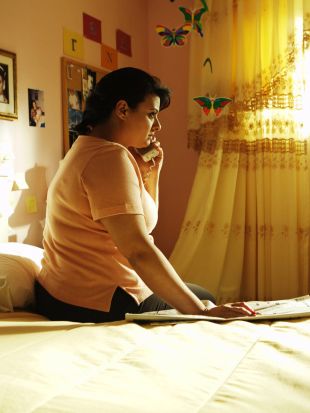
In the basement of a suburban Illinois home, a recently immigrated Palestinian teenager tells his mother that living in America "sucks." Her response? "Every place sucks." Amreeka, written and directed by Cherien Dabis, is a stark reminder that life is hard for most people in the world, and would be regardless of where they lived. Even when theoretically improving their circumstances, they are often just exchanging a greater evil for a lesser one. It's especially so for these two Palestinians, perennial outsiders, who have a telling miscommunication with a U.S. immigration officer regarding the terms "country of origin" and "occupation." In following the mother, Muna (Nisreen Faour), and the son, Fadi (Melkar Muallem), from their lives in the West Bank to their lives in the American Midwest, Dabis contributes to a growing number of smart independent films that examine the prototypical immigrant experience in 21st century America. She sets the film in the days following the U.S. invasion of Iraq, which further complicated the prospects not only for recent Arab immigrants, but for those who had been stateside for years. But neither is it Dabis' intention to depress us. The film has numerous moments of whimsy, from sources as diverse as Muna's kvetching mother back in the West Bank, to Muna's blue-haired co-worker at White Castle, to Muna herself, whose attempts to earn money for her son demonstrate a determination that's both funny and touching. If anything, one might accuse Dabis of wrapping things up too cleanly. Amreeka ends with a scene of harmonious interracial celebration that seems almost naïve given what's come before, not to mention abrupt in its suddenness. But Dabis' point seems to be this: when people are hoping against hope to better their lives, they can't afford not to believe in unlikely happy endings.
